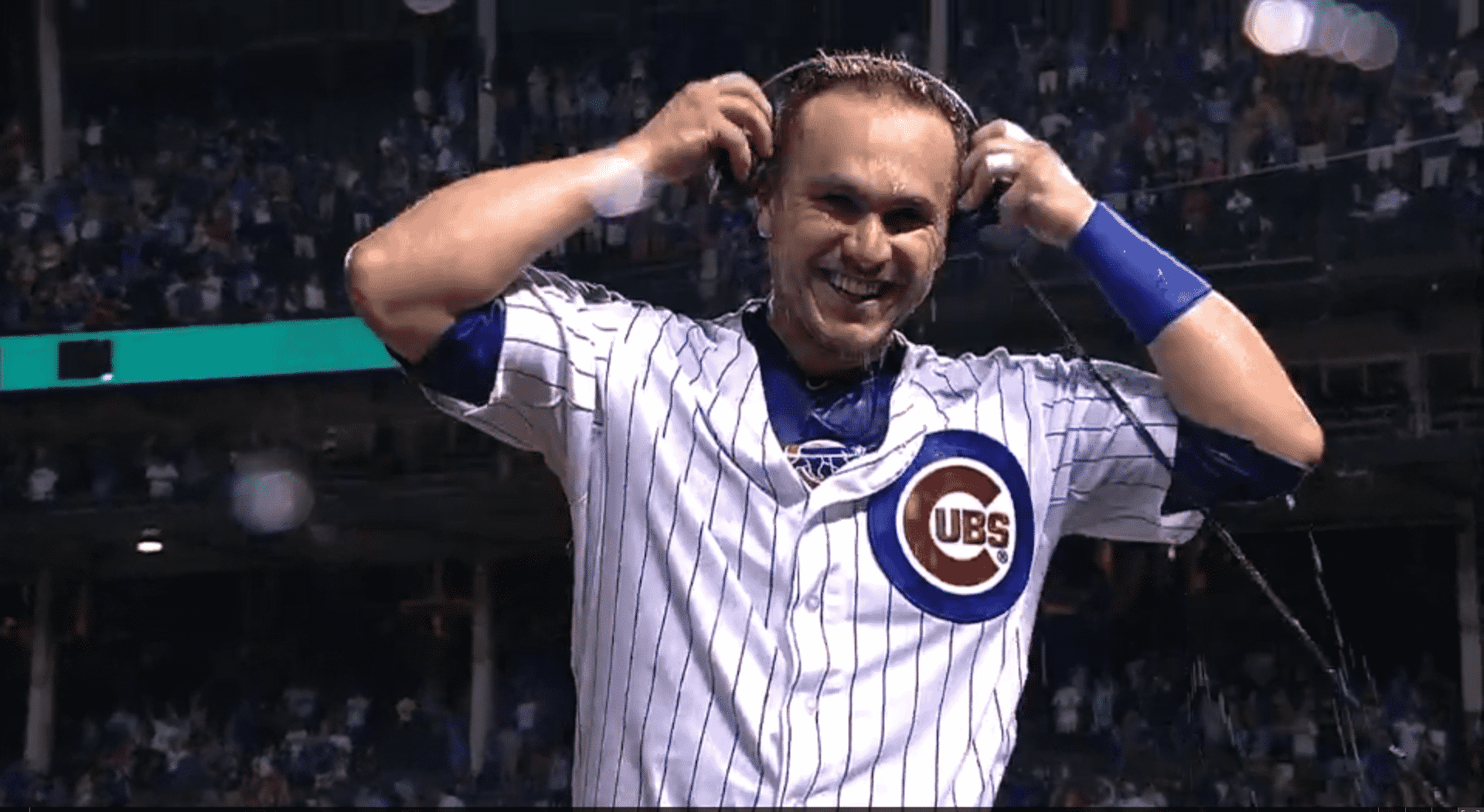
I’ve Got a Few Potentially Unpopular Cubs Opinions to Share
I pride myself in not being one of those knee-jerk-reacting hot-take artists so prevalent in this era of sports information. Anyone can say anything and have it spread like a virus of idiocy to all corners of the digital world. There’s a tendency to join in on the virtual mob and shout down those opinions that don’t match yours, calling into the fray others who feel the same way you do. That said, there are some well-formed opinions that end up being shouted down because they don’t necessarily fall in line with what the cool kids are saying.
Not that I’m some kind of innocent bystander in all this. I’ve done my share of take-shaming and I can’t promise you I won’t do it again. But I’ve also found that it’s much more productive to have intelligent discourse with those possessed of differing viewpoints, at least inasmuch as those folks can conduct such conversation. Truncated by nature, Twitter thoughts are often devoid of nuance and require more explanation than a character limit allows. That’s why I’m taking to the longer-form medium of the web log to lay out my thoughts on a few topics that might otherwise have readers taking up torches and pitchforks.
Understand that I’m saying any of this to be inflammatory or contrarian, but to better express a few takes that, absent explication, might not go over too well with the Twitterati. Let’s see how this goes.
It makes sense to trade Miguel Montero
Miguel Montero out-performed expectations for the Cubs in 2015. He was a solid defensive catcher, showed pop in his bat, and was a big part of the personality of a team that had many falling back in love with Cubs baseball. He’s also a big part of a payroll that may not have enough slack right now to add the players necessary to take that next step.
Despite his resurgent performance, the $14M price tag over each of next two years tell me that Montero could be a rapidly depreciating asset. I have real concerns with his durability, which I think has the potential to usurp his overall value. It’s incredibly difficult to evaluate the true impact of a really solid catcher (psychological benefits to staff and other players, strikes created and balls saved) because, like a great point guard, the best backstops elevates the play of those around him.
You can, however, overpay for an individual player. I think the value you could get from Montero’s freed-up money plus a cheap catcher, not to mention more time for Schwarber behind the plate in order to determine whether there’s really any sort of future at all for him there, would mitigate the loss of Miggy’s bat and glove. Here’s the thing though: this is all operating under the assumption that they can move him at all, and without eating significant cost in doing so.
I suppose it’s possible that I’m the only one harboring these concerns (actually, I know there’s at least one other out there), but I’d be willing to be that not every MLB GM out there would be willing to put up $28 million for a 2-WAR catcher who’ll be turning 33 during the coming season. Yes, I understand that a catcher cannot be measured by WAR alone, but Miggy strikes me a sell-high guy who has serious potential to fall off in one of the next two seasons.
Again, I get his value and that he was very good for the Cubs, I just don’t believe he can sustain that contribution at a level commensurate with his payroll hit.
I’d move Jorge Soler for a decent starter in a heartbeat
A lot of you out there love you some Georgie Sunshine, but I just don’t feel as warm and fuzzy about him. There was a not-all-that-uncommon sentiment heading into the 2015 season that Soler, not Bryant or Baez or Russell, would be the real breakout stud on this team. While he hit the ball really hard, he really didn’t do a great job of hitting it very high or very far. While his average batted-ball velocity of 92.37 mph ranked 30th in MLB among players with 50 measured ABs, his average distance of 301.1 feet ranked 197th.
No, that’s not even close to a true measure of Soler’s skill, but it’s a small warning sign that has me more than a little worried about that massive potential ever being reached. My other concern is with his ability, or lack thereof, to stay healthy. History is littered with guys whose careers were derailed or hampered by nagging injuries. At what point will Soler be able to combine 100 percent physical performance with 100 percent confidence?
Right now, we can do little other than ask the Magic 8 Ball, and it’s saying “Results hazy try again.” That’s better than “Outlook not so good,” but I don’t even want to get to that point. Call me paranoid, but I would be more than okay with the Cubs sending Soler to Atlanta for Shelby Miller or to Cleveland for [insert name of young, cost-controlled starter here]. They can say all they want about not “needing” to pursue more SP’s, but I think we all know they’d do the deal if it worked in their favor.
Finally, my acceptance of a Soler deal is also fueled by the idea that it would probably mean the team had agreed with Jason Heyward.
Kris Bryant’s grievance has merit
I’m not going to spend a lot of time on this because I’m not well versed in either the CBA or labor law, but I do have some thoughts to share. This is an MLBPA thing. They file grievances in order to playing field level when it comes to matters involving their members and theirs is probably the most powerful union in sports. The MLBPA, mainly through Executive Director Tony Clark, was outspoken prior to the season regarding what was then merely speculation that Bryant’s service time would be manipulated.
I was dismissive of Clark’s statements at the time they first came out, but here’s the thing: despite all of this following the written rules of the CBA, there’s merit to the claims that by artificially manipulating Bryant’s call-up for nothing but the express purpose of postponing his arbitration eligibility and free agency, the Cubs did not act in good faith. That’s all labor law stuff, the real specifics of which I’m not intimately familiar with, but there’s more to it than the letter of the law.
Yes, the Cubs said Bryant needed to work on his defense, but I don’t think one among us believes that’s the real reason he was held back. Had Mike Olt not hurt his wrist, the Cubs might have had a bit more slack (as it was, Bryant was called up just one day after the cut-off for accruing a year of service time), but the reality is that Olt did get hurt. In the end, the Cubs played within the rules of the CBA and I don’t think much will come of this.
Bryant’s grievance, however, is likely as much a PR move to drive both momentum and conversation around this topic so that the PA has a bit more leverage when the two sides head back to the bargaining table.
That’s all for now, but be sure to check me out on Twitter for more short-form takes and finger-pointing.

